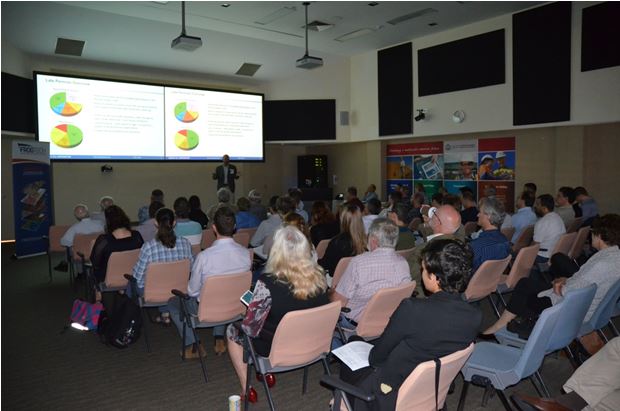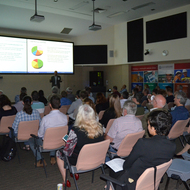Strong interest in oil and gas exploration in older rocks
| Date: | Tuesday, 20 December 2016 |
|---|
Western Australian exploration for oil and gas in sedimentary rocks formed as far back as 360 million years ago was the focus of a recent workshop at the Department of Mines and Petroleum (DMP) that was attended by nearly 90 people.

“In the past few years significant new petroleum accumulations have been discovered in Carboniferous, Permian and Triassic sedimentary formations in onshore and offshore Western Australian basins,” Geological Survey of Western Australia Energy Geoscience Manager Deidre Brooks said.
“Historically, the majority of offshore WA petroleum exploration has been focused in the upper Triassic, Jurassic and Cretaceous, and new discoveries have sparked widespread industry interest in the potential of the older rocks.”
Ms Brooks said that the idea to hold a geological workshop to foster ideas, generate discussion and share knowledge on these WA sedimentary formations was the brainchild of Carnarvon Petroleum Exploration Manager Stephen Molyneaux, who approached DMP to see if it would be interested in hosting an event of this nature.
After some discussions with other industry people interested in taking part and colleagues at DMP, Ms Brooks arranged for the workshop to be held in the Theatrette at Mineral House on 6 and 7 December.
The ground rules were that attendance would be guaranteed if would-be participants were prepared to make a presentation, and that would also allow them to bring along two co-workers.
“The workshop was a resounding success with many industry, academics and government geologists freely trading concepts and information which highlighted how little knowledge there is on rocks of this age,” Ms Brooks said.
“Hopefully, the workshop will lead to some new inspired geological thinking that will in turn lead to future exploration successes.”

